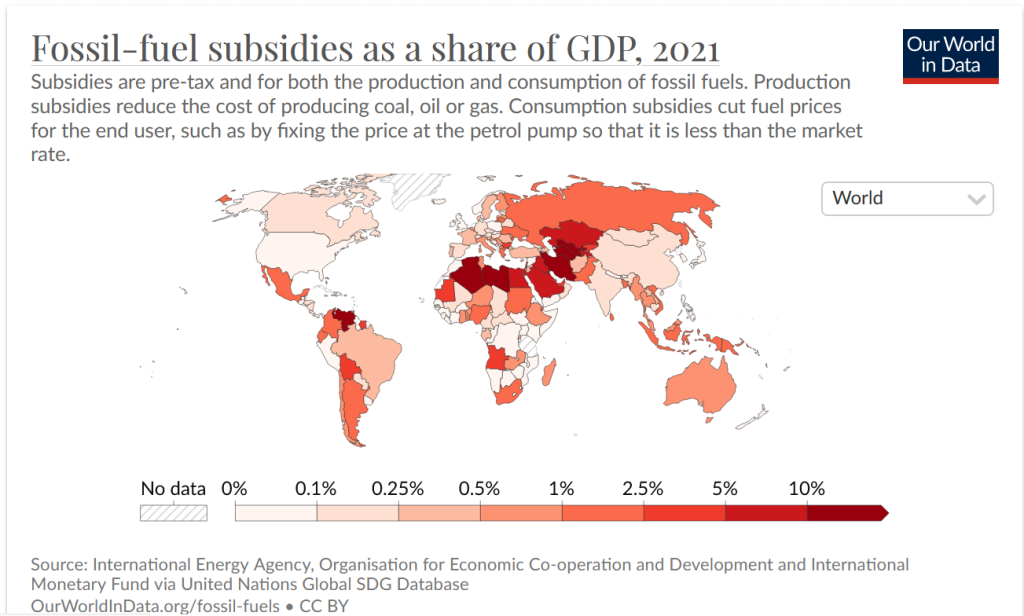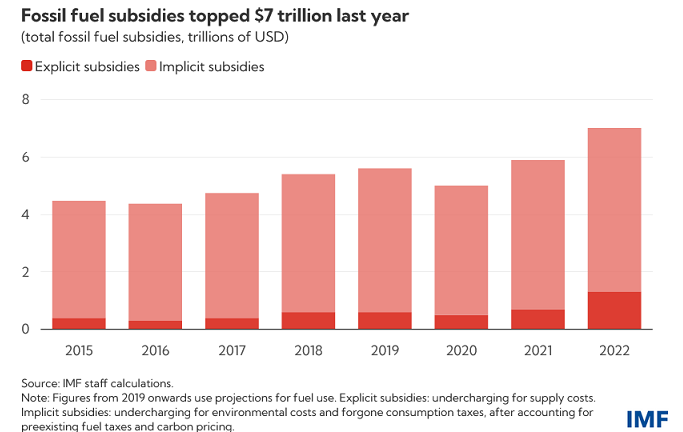The fossil fuel sector is going to face a major push by the UK and EU at the closed-door OECD meeting in November. Insiders are reporting that members will be asking for an end to subsidies for foreign oil and gas operations and coal mining. This push will be met by severe resistance as not all OECD members are on the same line. Western countries, especially mainstream EU and UK, are likely to support a change the historically strong support of governments for hydrocarbon fuel subsidies and financing. Some countries now are stating that this OECD approach is not anymore with the Paris Agreements to keep global warming to well below 2C. It is expected that most governments however will be very worried to support a push to remove subsidies, as domestic markets and consumers are not keen to face even higher energy prices, while the cost of living is also expected to increase. Overall, the call for an end to fossil fuel subsidies is not new, as it is also going to be a major discussion point at the COP28 negotiations in Dubai the coming weeks.

Criticism is also building up as the framing of fossil fuel subsidies is wrong, in reality it is not a subsidy to industry or energy-intensive sectors but a lower tax rate for large energy users. Reality shows that all in the OECD are taking advantage of this system, as prices for goods, transportation and housing are kept low. Removing fossil fuel subsidies unilaterally by governments is not yet a case of interest, as economists are warning that industry and jobs will be leaving to other places if their energy bills are hiked.
Western NGOs are however on a war footing, as groups like Extinction Rebellion or Stop Oil have become mainstream, at least according to media. In a statement made by Nina Pusic, export finance climate strategist at US environmental NGO Oil Change International (OCI), ending export credit agencies’ provision of loans and guarantees for fossil fuel projects would be “an essential first step to keeping our international climate goals within reach”. This kind of statements is not only regarded to be one-sided but also not based on reality. Outside of the OECD, keeping in mind the fact that most oil, natural gas and coal reserves are in non-OECD or even emerging markets, subsidies are not even discussed at all. Most non-OECD governments need to subsidize energy related products to keep their economy strong or more important keep their own government or regime in place.

The West or as the Global South sometimes states, the Rich Countries, sees it differently. According to NGO OCI OECD countries’ export credit agencies are spending around $41bn per year to support coal, oil and gas projects between 2018 and 2020. In 2021 OECD countries have agreed to stop subsidizing coal-fired power generation abroad. However, the Russian invasion of Ukraine has put not only a damper on all, it slowly is now being reversed. Coal is still not dead, as German’s push for coal currently shows, or China’s major multibillion investments. Since 2021 the discussion is now heating up, as oil and gas is now also being targeted. To set up an OECD wide stop to subsidies is not feasible at all. Maybe a voluntary agreement can be reached, but will need the support not only of major European countries, UK and USA, but also from Japan and South Korea. Looking at the current energy market situation, the increased volatility and geopolitical challenges, it is not expected that the OECD meeting will be able to reach even a tacit understanding to cut subsidies or pressure export credit agencies to change their policies. Still, there will be plans put on the table by the UK, Canada and the EU to address these issues and push for an agreement.

The main push to cut subsidies for oil and gas operations internationally comes again from the EU. Brussels is again leading a pack of countries to end support for oil, gas and coal. Insiders state that Brussels will at COP28 call “for a phase out as soon as possible of fossil fuel subsidies which do not address energy poverty or just transition”. New EU climate chief Wopke Hoekstra already stated that fossil fuel subsidies are “outdated and counterproductive”. Analysts look at these statements with a smile, as Hoekstra, a former Dutch minister, was not known before he entered his EU office even to look at the energy-transition. The current Dutch government is also not known to be a full supporter of an end to fossil fuel subsidies inside or outside the EU. It also very prudent to mention that the EU Parliament is up for new elections in 2024, so most current discussions could be either thrown out of the room if a new European Commission is being appointed or nothing will be done until the beginning of 2025, as processes are very slow too.
